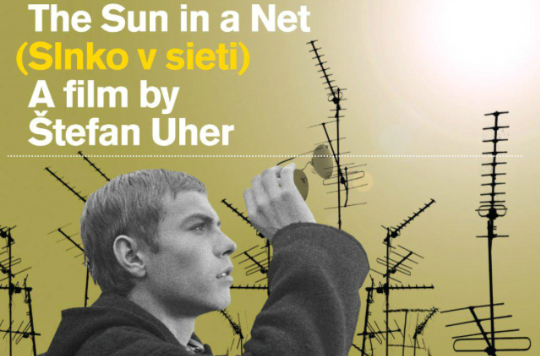1962年 斯洛伐克語 電影。史蒂芬·烏赫爾作品。
基本介紹
- 中文名:巢中的日出
- 外文名:Slnko v sieti
- 其它譯名:網中的太陽 Slnko v sieti
- 導演:史蒂芬·烏赫爾
- 類型:劇情
- 對白語言:斯洛伐克語 / 捷克語
基本信息
影片簡介
The solar eclipse barely discerned by the main characters through thick clouds at the beginning of the film is echoed by summer and fall images of the sun[3] as they present themselves to all of them at various points in the film through a fisherman's net from his pontoon on the Danube beyond the city's suburbs, which Fajolo and Peťo have discovered independently and use as a swimming deck, a place to ponder life, or to try to seduce Bela. When, however, Bela brings her mother and brother Milo (Peter Lobotka) to the pontoon after a series of subdued interpersonal crises, the pontoon is on dry land because the water level has dropped, and the film ends with Bela and Milo lying to their mother about what they can see as they did about the visibility of the eclipse during the opening sequences.
--------------------------------------------
The Sun in a Net (Slnko v sieti) became a key film in the development of Slovak and Czechoslovak cinema from the mandated Socialist-Realist filmmaking of the repressive 1950s towards the Czechoslovak/Czech New Wave and socially critical or experimental films of the 1960s marked by a gradual relaxation of communist control. Stefan Uher's cinematic idiom is as exquisite and deliberate as any of his European contemporaries, including Michelangelo Antonioni, Ingmar Bergman and Chris Marker. The Sun in a Net received multiple votes in a wide survey of Czech and Slovak film academics and critics in the late 1990s asking them for their lists of the 10 best films in the history of filmmaking in the former Czechoslovakia.

